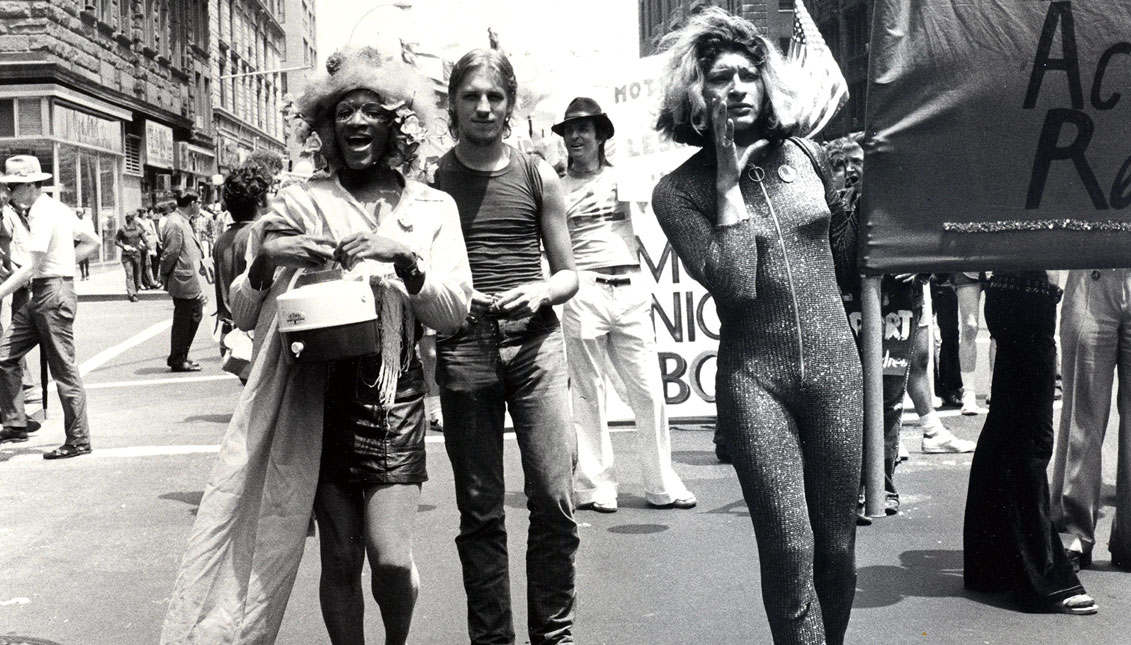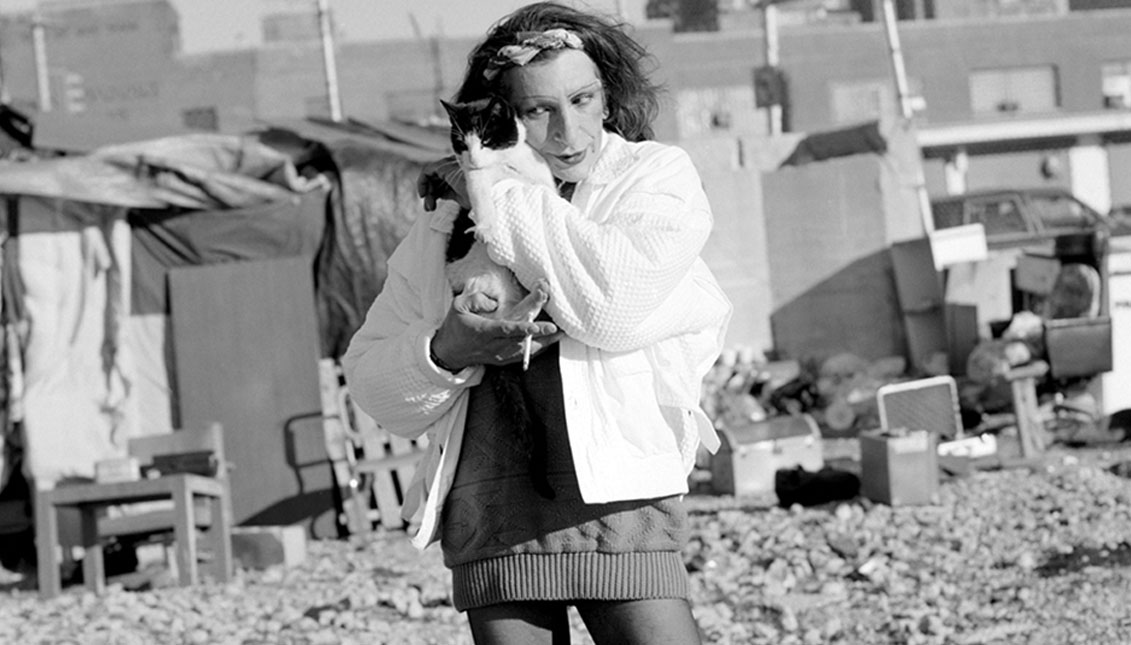
Sylvia Rivera, The pioneering Latinx that led the revolution for LGBTQ+ rights in the United States
“Hell hath no fury like a drag queen scorned.”
On the occasion of LGBTQ+ Pride Month, we remember Sylvia Rivera: a great trans Latinx leader and activist, who was at Stonewall and was part of the birth of the civil rights movement, leading innovative initiatives to support and protect the LGBTQ+ community from structural violence.
Sylvia Rivera marked a before and after in the history of our community.
Stonewall Inn was a mob-controlled bar. It was the famous watering hole in Greenwich Village where the riots that marked the beginning of the struggle for LGBTQ rights began on June 28, 1969.
The mafia had no particular sympathy for New York's gay and lesbian community. It was simply a matter of business: there was a section of the population that no one else wanted, but was willing to pay to have a place. And where there was money, the mafia was there.
The mafia's ties to the police meant that they were usually alerted to raids in their bars, but Stonewall's day was different.
The raids were so frequent, and the mechanism between the bar owners and the police was so prearranged, that the police usually arrived early, lined up all the bar patrons outside, checked documents, arrested those who didn't have any and the trans people, and then left. Then the bar staff would take out the liquor they had in a separate back room and resume their duties early enough that, even with the operation, it would be a regular business night for the establishment.
That June 28 was the start of the operation, but not the end. The police cars in which the arrested people would have been taken took a long time to arrive. Those who could have left did not leave and a battle broke out between the bar patrons and the police.
Sylvia Rivera said that the moment she saw the first Molotov cocktail bomb flying into the air, towards the police, she said to herself, in Spanish, "My God, the revolution is finally here!" and started shouting "Freedom! We're free at last!".

Watching the videos that are preserved of her speaking in public — such as the speech she gave at the 1973 liberation march — it is easy to imagine her with the fury of a battered and wounded beast, a fury that even hell does not know, roaring "Freedom!” confronting the police, screaming, beating up officers and throwing bottles.
Because the time had finally come when everyone decided enough was enough. A moment that would mark a before and after.
There are conflicting versions of this story. Sylvia claimed to have been there until death, but according to other accounts, she was asleep, having injected herself with heroin.
There is no controversy about two things. One, that at that time Marsha P. Johnson was there, remembered as the Rosa Parks of trans rights, and two, that Marsha P. Johnson and Sylvia Rivera would make a tireless duo in the fight for LGBTQ+ rights, even in times when their own community turned its back on them.
Sylvia Rivera was born Ray Rivera on July 2, 1951, in New York and died at the age of 50, on February 19, 2002, of liver cancer, in the same city.
Of Puerto Rican and Venezuelan descent, she suffered at an early age from her father's abandonment and at age three from her mother's suicide. She was left in the custody of one of her grandmothers, with whom she had a tense relationship because of her effeminate gestures and started wearing makeup in the fourth grade.
At the age of ten and a half, she ran away from home and began her life in prostitution and committing petty crimes.
But her grandmother continued to watch over her from afar and often posted her bail, as she would tell Eric Marcus — the host of the Making Gay History podcast — in an interview in 1989. It was a group of drag queens who took her in and called her Sylvia, a name she would answer for most of her adult life.

By this time Sylvia identified herself as a drag queen because it was the word at the time to describe sexual identities that did not feel in line with the sex assigned at birth. The terms "transsexual" and "transgender" began to appear in the mid-1960s and as terms in sexual pathology manuals.
In fact, the World Health Organization removed transsexuality from its list of mental illnesses only in June 2018.
As Rivera said in an excerpt from her book Street Transvestites, Revolutionaries in Action: Survival, Revolt and Queer Antagonistic Struggle, drag queens endured every oppression imaginable, like ladies in waiting, waiting for something to happen. And when it did, they were in the right place.
STAR is born
Rivera and Johnson founded STAR, Street Transvestite Action Revolutionaries, in 1970.
RELATED CONTENT
Rivera came up with the original idea that was both simple and immensely complex to carry out: to provide a refuge for those who needed it and to prevent them from having to go through what she did.
Sylvia and Marsha, with the support of the Gay Liberation Front, got a four-bedroom apartment at 213 East 2nd Street in New York's East Village. The apartment had no electricity or heat, and they adapted, not knowing how to do it.
At the STAR House, Marsha and Sylvia received transgender and gay homeless people and protected them. They continued to prostitute themselves to keep their hosts off the streets.
At the same time, STAR was also a platform for activism where Sylvia connected with the most radical civil rights movements there were, the Young Lords of Puerto Rico and the Black Panthers among them.
Unfortunately, the STAR house only lasted one year. On July 15, 1971, the two activists failed to pay the rent and because so many people were already living and supporting them, the owner of the apartment evicted them.
The story of Sylvia and Marsha leads us to remember the way in which privileges and forms of discrimination intersect.
They fought discrimination not only because they were transgender, but also women of color. And at one time they were discriminated against even by the gay community, for whose rights they fought so hard for.
Sylvia's position could be described as a quest for liberation, while much of the gay movement of the time could be characterized as one of assimilation.
This is why trans women were not welcome: because they stood out. Their teeth were chattering about how different and often bizarre they were. While Sylvia and Marsha went out marching in spandex and feathers, the first gay march was in suits and ties.
One of Sylvia's greatest moments of outrage, when she felt most painfully betrayed by the movement, was at the 1973 Liberation march. After all her efforts for LGBTQ+ rights, Sylvia had been promised a space to give a public speech. Instead, she was pushed to the back of the march, ashamed of her transsexuality.
Sylvia, fed up, elbowed her way through, and in a black-and-white video, you can see the puzzled face of the speech round MC when he saw that there was no way to stop her from speaking. Sylvia snatched the microphone from him — at one point it looked like she was going to hit him with the stand that was holding it — and silenced the booing crowd.
Johnson died in 1992. The case was closed as if it were a suicide on the Hudson River, but family and friends argue that it must have been a homicide. After her death, Sylvia lived on the streets for years until getting the support of Rusty Mae Moore and Chealsea Goodwin as she recovered from alcoholism and resumed her activism.
Although the struggle for the rights of the LGBTQ community has advanced over the past thirty years, the trans population, and even more so the trans people of color, remain terribly vulnerable. Just last week, the Supreme Court recognized that it was not constitutional to deny someone the right to work because they are transgender.
But the rage Sylvia carried in her chest has continued and will continue to push for the rights that in every law belong to them.











LEAVE A COMMENT: